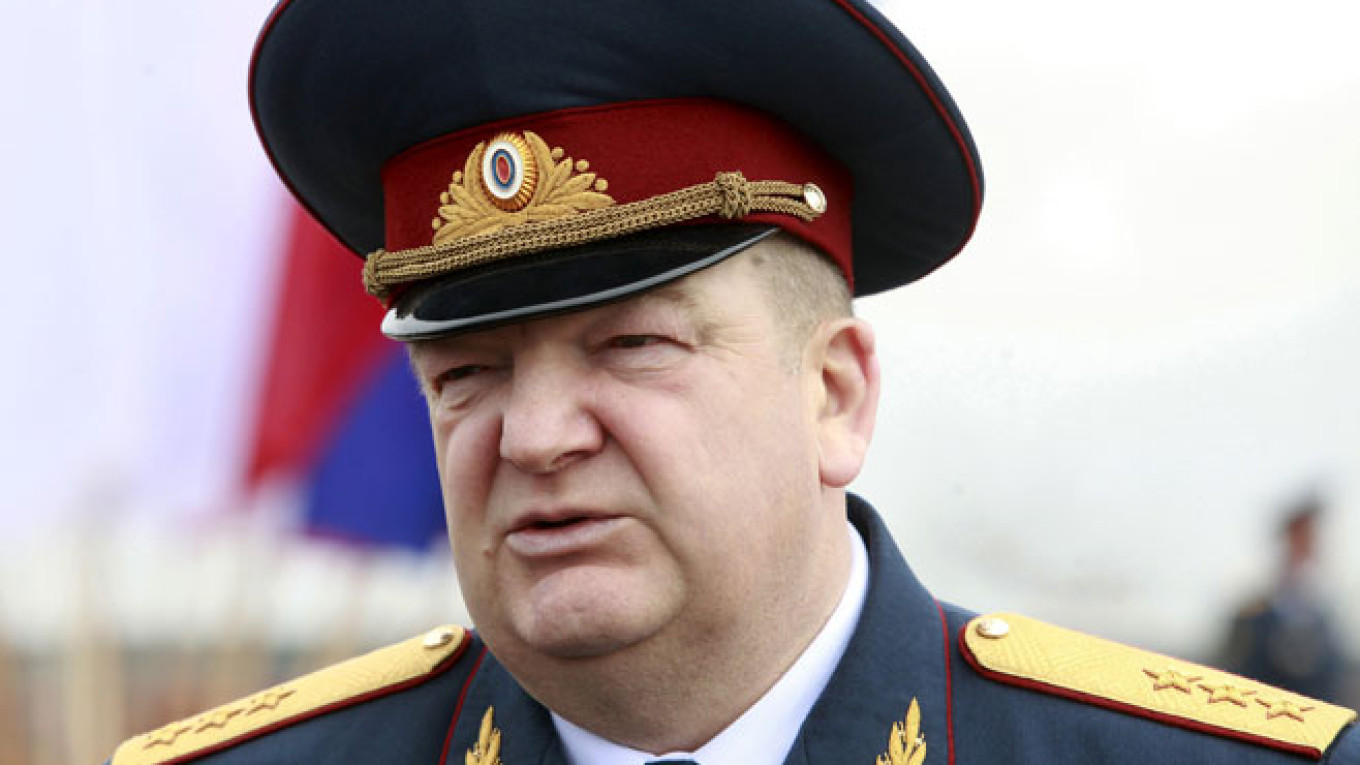A court sanctioned the arrest of the former head of Russia's federal prison authority on suspicion that he embezzled billions of rubles while holding the position, the Investigative Committee announced Tuesday.
Alexander Reimer, who served as director of the Federal Penitentiary Service (FSIN) from 2009 to 2012, was charged with embezzling over 2.7 billion rubles ($46.4 million at the current exchange rate) allocated for the purchase of electronic tagging bracelets.
Investigators say that though the bracelets were actually acquired, they were purchased at hugely inflated prices. Stationary bracelets which should have cost 19,000 rubles were purchased for 108,000, and mobile bracelets that should have cost 19,000 were purchased for 128,000, according to the statement.
According to the RAPSI legal news agency, Reimer and his deputy Nikolai Krivpalov are accused of having consented to purchasing the bracelets at trumped up prices.
The arrests of Krivpalov, and two additional suspects were also ordered, the Investigative Committee said.
Reimer denies any involvement in the crime, RIA Novosti reported.
Reimer's is not the first high-profile arrest in recent weeks, amid what appears to be a crackdown on graft among the highest echelons of Russian government.
President Vladimir Putin last week fired the governor of the far eastern Sakhalin region, who faces up to 15 years in prison on a charge of large-scale bribe-taking.
Former governor Alexander Khoroshavin, who is in a pretrial detention center in Moscow, allegedly received more than $5.6 million in bribes to facilitate business deals while governor, investigators have said.
Earlier this month, authorities seized some $16 million in cash from Khoroshavin's multiple homes, including three apartments in Moscow and a nearby dacha.
According to statements posted last Wednesday on the Kremlin's website, Putin relieved Khoroshavin of his duties because of a loss of confidence in the official.
A Message from The Moscow Times:
Dear readers,
We are facing unprecedented challenges. Russia's Prosecutor General's Office has designated The Moscow Times as an "undesirable" organization, criminalizing our work and putting our staff at risk of prosecution. This follows our earlier unjust labeling as a "foreign agent."
These actions are direct attempts to silence independent journalism in Russia. The authorities claim our work "discredits the decisions of the Russian leadership." We see things differently: we strive to provide accurate, unbiased reporting on Russia.
We, the journalists of The Moscow Times, refuse to be silenced. But to continue our work, we need your help.
Your support, no matter how small, makes a world of difference. If you can, please support us monthly starting from just $2. It's quick to set up, and every contribution makes a significant impact.
By supporting The Moscow Times, you're defending open, independent journalism in the face of repression. Thank you for standing with us.
Remind me later.


